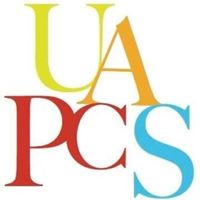Staying up-to-date on recent changes and implementing best practices will help ensure that your board remains in full compliance with OPMA.
Charter school boards in Utah operate within a framework of laws designed to ensure transparency and accountability in decision-making. One such framework is the Utah Open and Public Meetings Act (OPMA), which mandates that the public has access to the workings of governmental bodies, including charter school boards. Compliance with this law not only builds trust with stakeholders, but also avoids legal pitfalls. Recent amendments and evolving practices in virtual meetings, use of digital tools and meeting notifications make it essential for charter boards to stay updated. This article explores the essentials of OPMA and the practical steps for charter schools to comply with a focus on new updates.
The Purpose of Utah’s Open and Public Meetings Act
Charter school boards are required to follow this act in order to maintain transparency. The law mandates that meetings be open to the public, adequately noticed and that minutes be recorded. In recent years, amendments have added clarity to how these meetings can be conducted electronically, as well as how boards can use tools like email and collaborative platforms while staying compliant.
Recent Changes to the Open and Public Meetings Act
Virtual Meetings and Electronic Communication
One of the most significant areas of evolution in OPMA pertains to electronic meetings. In response to the growing need for flexibility, especially post-pandemic, Utah lawmakers have expanded provisions allowing public bodies to meet electronically. These changes are vital for charter schools that often have board members spread across different regions and occasionally need to make decisions outside of in-person meetings.
Electronic Meetings
The law allows boards to hold electronic meetings if certain conditions are met. The board must adopt a resolution, rule or ordinance allowing for electronic meetings and must provide public notice that the meeting will be conducted electronically, specifying how the public can attend or participate. This may include teleconferencing, video conferencing platforms like Zoom or other digital tools.
- Public Participation: It’s essential that the public is given a reasonable opportunity to attend or comment during electronic meetings. Boards should ensure the platform used allows this level of interaction.
Use of Email and Collaborative Documents
While emails and platforms like Google Docs can be convenient for drafting documents and working on agendas, they must not be used as substitutes for public meetings. Recent guidance emphasizes that substantive discussion or decision‑making on public matters through emails or collaborative documents is a violation of OPMA. Charter boards should avoid “working meetings” through digital tools unless properly noticed and open to the public.
Noticing and Posting Requirements
OPMA places strict guidelines on how and when public bodies, including charter school boards, must notify the public of their meetings. Properly noticing a meeting ensures transparency and gives the community the chance to participate. Missteps in this area can lead to non‑compliance and legal challenges.
Timing for Notices
Meeting notices must be posted at least 24 hours in advance. This includes providing an agenda that specifies the topics to be discussed. A common error boards make is posting general meeting notices without specific agenda items, which violates OPMA. The public should know what will be addressed during the meeting.
Posting Locations
Notices must be posted:
- On the Utah Public Notice website. This is a critical requirement for all public meetings.
- At the principal office of the public body or, if no such office exists, at the building where the meeting is to be held.
Meeting Minutes and Recordings
Meeting minutes are one of the key ways that public bodies maintain transparency. OPMA requires that minutes be kept for all open meetings and that they include essential details about what occurred.
Meeting minutes should include:
- The date, time and place of the meeting.
- Names of board members present and absent.
- A summary of discussions and decisions made, including motions, proposals, resolutions, orders and ordinances.
- Any votes taken, including how each board member voted.
Posting Minutes
Draft minutes must be made publicly available within 30 days of the meeting, and approved minutes must be posted within three days of their approval. Boards that do not post minutes in a timely manner risk violating OPMA.
Audio/Video Recordings
Public bodies are required to make an audio recording of their meetings and make it available to the public. For electronic meetings, it is often practical to record both video and audio. Recordings provide an additional layer of transparency and ensure that the public has access to the full details of the meeting.
Closed Sessions: When Are They Permitted?
While OPMA mandates that most discussions occur in an open and public setting, there are circumstances when a board may enter a closed session. However, these sessions are limited to specific situations, such as:
- Discussing the character, professional competence or physical or mental health of individuals.
- Strategy sessions to discuss pending or reasonably imminent litigation.
- Discussions about the purchase, exchange or lease of real property.
To enter a closed session, the board must first hold an open meeting and take a public vote to close the meeting. The motion must clearly state the reason for the closed session, and minutes must still be kept, although they may be sealed depending on the topic.
Ensuring Compliance and Avoiding Pitfalls
To ensure compliance with OPMA, charter school boards should implement the following best practices:
- Training: Board members should undergo regular training on OPMA requirements to stay updated on changes. Many organizations, including the Utah Association of Public Charter Schools (UAPCS), offer training.
- Policies and Procedures: Boards should adopt clear policies and procedures that outline how meetings will be noticed, conducted and documented. These policies should be reviewed annually and adjusted as necessary to reflect changes in the law.
- Consult Legal Counsel: If there is any uncertainty about OPMA compliance, it is always wise to consult legal counsel. Simple mistakes, like failure to properly notice a meeting or incorrectly entering a closed session, can lead to significant legal and reputational consequences.
Utah’s Open and Public Meetings Act is a vital tool for ensuring government transparency, and charter school boards are no exception to its provisions. By understanding and adhering to the act’s requirements — especially with regard to electronic meetings, the use of digital tools, proper meeting notice and recording of minutes — boards can maintain trust with their stakeholders and fulfill their legal obligations. Staying up-to-date on recent changes and implementing best practices will help ensure that your board remains in full compliance with OPMA.









